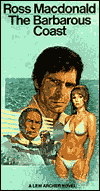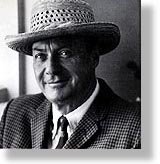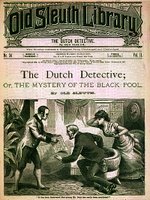 At your right, a photo of me. Although this picture reflects no credit upon Mama's photographic skill [note the singular noun], it does illustrate, however partially, some relevant points of interest. For example, behind me, a few of my books arrayed in their proper place, a bookcase. The chair on which I'm posed and the partial view of the bed to the front are two favored places for reading mysteries. And finally, note the turquoise "j" behind me and to the left. Believe it or not, that's my yard chair where, weather permitting I relax & read, either on my screened in porch or in my vast, if unkempt, yard.
At your right, a photo of me. Although this picture reflects no credit upon Mama's photographic skill [note the singular noun], it does illustrate, however partially, some relevant points of interest. For example, behind me, a few of my books arrayed in their proper place, a bookcase. The chair on which I'm posed and the partial view of the bed to the front are two favored places for reading mysteries. And finally, note the turquoise "j" behind me and to the left. Believe it or not, that's my yard chair where, weather permitting I relax & read, either on my screened in porch or in my vast, if unkempt, yard.
Now, let's consider the British mystery series in which the protagonist, a male policeman of the CID, tends to work alone or in a fruitful partnership that yet doesn't quite fit the Professional Marriages category. Most of these novels are written by men, unlike the previously reviewed Grandes Dames of British mysteries [previous entry], written by and "starring" women. Some reviewers refer to the Lone Inspectors series as "police procedurals" a designation that, not unlike the "English cozy" [October 23 entry], serves as a banal marketing niche rather than a genre worthy of consideration.
Listed, described & Mercury Rated below:
Author, Colin Dexter; Inspector Morse series.
Author, Michael Innes [aka John Innes MacKintosh Stewart]; Inspector Appleby series.
Author, Edmund Crispin [aka Bruce Montgomery]; Gervase Fen series.
Author, Caroline Graham; Inspector Barnaby series
Author, Graham Thomas; Detective-Chief Superintendent Erskine Powell
Author, Christopher Fowler, Bryant & May of London's Peculiar Crimes Unit
********************************************************************************
Colin Dexter, in the US perhaps the best known amongst these authors, created Inspector Morse, college drop-out [yet eriudite], brooding [thoughtful], solitary [with the possible exception of his partnership with Detective Lewis], clever ["Cleverest bugger I've ever met....He usually seems to be able to see things...half a dozen moves ahead of us."]. Each of 13 novels is set in Oxford [that's England, not Mississippi]; so clearly is Oxford (re)created that a book Morse's Oxford provides a mystery-loving traveler's week or two worth of day trips about town. Perhaps enough to add that the last novel, The Remorseful Day, is, if anything, the most brilliant of all. Mercury Rating: First rate; highly recommended
Michael Innes [1906-86],who under his real name taught English and published work on Rudyard Kipling and Thomas Hardy, created Inspector John Appleby and we follow Appleby's career as he moves up the ranks of Scotland Yard and into retirement [from his career if not from his metier, solving mysteries]. In 1975 Appleby is joined by a light-weight chap but talented and acclaimed painter Charles Honeybath. Occasionally Appleby's wife and son, both of whom age as the series develops, drive the story, dragging Appleby into confusing and dangerous [and murderous] situations. Innes is credited with inspiring a "penchant for donnish detective fiction" of which our next author provides another outstanding example. Mercury Rating: First Rate; highly recommended
Edmund Crispin [1921-78] read Modern Lanugages at Oxford and served as organist and choirmaster at his college, St John's. Eschewing an academic career, Crispin was a career writer [of the Gervase Fen mystery series amongst other writing/editing activities] and composer. Crispin [writing in the 3rd person] describes himself thusly:
He is of sedentary habit--his chief recreations being music, reading, church-going, and bridge. Like Rex Stout's Nero Wolf[n.b.] he leaves his house as seldom as possible, in particular minimizing his visits to London, a rapidly decaying metropolis which since the was he has come to detest.
My particular favorite of the Gervase Fen series describes that Professor of English Language and Literature at Oxford chasing down a toy shop [The Moving Toyshop] which disappeared after the poet Cadogan finds a dead body in it. The novel was described by one critic as "...a rococo classic." Mercury Rating: First rate; highly recommended
N.B. Rex Stout created the famous American duo, extraordinary, hugely overweight detective Nero Wolf and his general run-about Archie Goodwin. Interestingly, and unlike many mystery series writers, time stands still across the novels so neither protagonist ages although Stout creates a mysterious international past for Wolf. Although I won't assign a Mercury Rating to the Stout collection, suffice it to say I've read them all with great pleasure.
Caroline Graham creates Chief Inspector Barnaby, a likeable softspoken police official who exposes the dark inside of the brightly quaint English in which these stories are set. Barnaby explores the darkness of love-hate, greed and murder with a contrasting quietness that I find particularly engaging. Try Faithful Unto Death or A Place of Safety. Mercury Rating: Very Good
When I first met Detective-Chief Superindent Erskin Powell and first read Graham Thomas' Malice in the Highlands, I was briefly inspired to take up fly fishing [a difficult though not impossible sport for a dog]. In this particular book of his series, Thomas sends Powell away from the miscreants of London and his [somewhat] troubled marriage and annoying teenagers off on a salmon-fishing vacation in the Highlands. However, murder lurks in Powell's haven and Powell is [somewhat] reluctantly recruited into solving the mystery. Other titles in this series also begin with "Malice in..." such as Malice in London, etc. Mercury Rating: Very good
Finally [perhaps inappropriately as it doesn't really fit the "Lone Inspectors category--well, not at all actually-- but after all, it is my blog] author Christopher Fowler, self-described "author of urban unease [and] dark comedy mystery..." entered the mystery series genre with A Full Dark House, last case of parnters Bryant & May. A very nice touch, that. Its setting is London, the Blitz, in and around the Palace Theater and present-day terrorism aware London. Four books in this series follow; I'm curently reading Seventy-Seven Clocks, setting Edward Heath's time [1974]. And finding it difficult to put down. Bryant is cranky, May, a charming womanizer, both rather brilliant when working together; apart their character flaws serve them ill. A supporting cast of characters provide amusing continuity and insights into the two protagonists without distracting from the moving forces of Bryant and May. I prefer not to recommend author's web sites, but Fowler's is an exception:
For an exciting, imaginative, innovative example of the genre, Fowler's Bryant & May series is highly recommended and I've assigned it a Mercury Rating equal to the classics reviewed above: First rate; highly recommended




















































